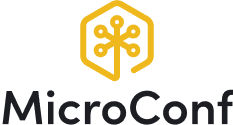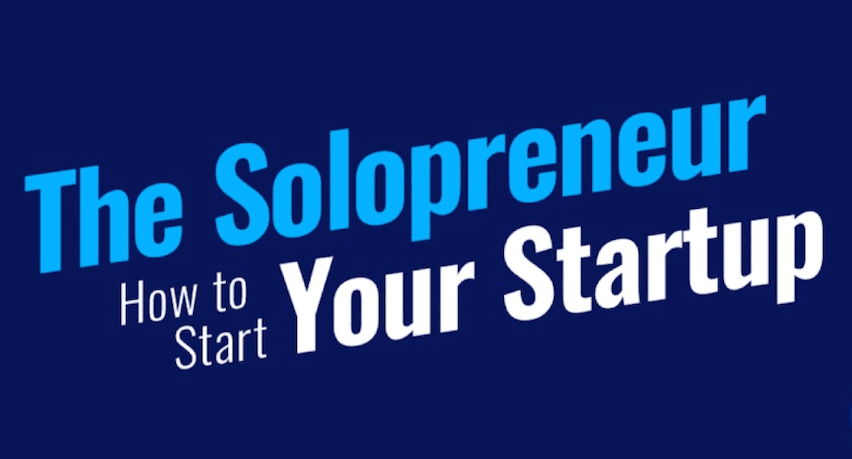Contents
the email tool that makes email marketing simple
Indie Hackers Guide: Tools, Stories, and Community Insights
Published: February 15, 2025
What Are Indie Hackers?
Indie hackers are individuals who create and launches a business or product independently (hence "indie"), without support from a large organization, investors or team. They tend to use their own money to launch and grow their business.
Such people are usually motivated by their own ideas, fervor, and interests. Many are highly committed to building and launching their own products or businesses without being hampered by management hierarchies.
Indie hackers often focus on lean and agile methodologies, and try to iterate and improve their products or businesses fast. They've carved out a niche in entrepreneurship that differs from traditional business models.
Indie hacks use digital tools and the internet to grow a business.
What's the Philosophy Behind Being an Indie Hacker?
Indie hackers choose to run their businesses their way. This means they get to make all the decisions and keep their businesses going in a way that suits them best, often leading to a business with fewer overheads and a more personal touch.
The way indie hackers work involves more than just making money. They value freedom and being their own boss. They enjoy being free to think outside the box and come up with new ideas.
These entrepreneurs aren't just making businesses; they're creating a way of life that mixes what they want to do in life with their own values and creativity. Most value a good work-life balance.
In essence, indie hacking isn't just a business model; it's a also way of life for those who choose this path.
What Makes Indie Hackers Tick?
Indie hackers are known for their do-it-yourself attitude, creative thinking, and love for digital solutions. These are the people who don't wait for permission to start their businesses. They use their skills and the internet to turn their ideas into reality.
One big thing about being an indie hacker is being able to make your own decisions. You don't have to answer to big investors or a board. This freedom means you can work on projects you really care about and do things your way . You get to be creative, try new things, and build your business piece by piece.
However, it's not always easy. Indie hackers often face slow growth in their businesses. Without much money to start with, it can take time to get things moving. This means they sometimes have to deal with financial worries and find a balance between work and their personal life. Stress and managing everything on their own can be tough.
This journey partly involves business tricks and tools. It also comes down to personal experience and the ups and downs along the way.
Now that we have a good idea of what an indie hacker is, along with the good and the tough parts of the journey, let's look into how they are different from people who start businesses with a small team or with less focus on technology.
Indie Hacker vs. Bootstrapper
The terms "indie hacker" and "bootstrapper" are often used interchangeably in the entrepreneurial world, and it's easy to see why. Both build their businesses from the ground up, relying heavily on their own resources and skills. The distinction between them, if any, is subtle and often blurs in practice.
Indie hackers typically focus on technology and digital solutions. They are the entrepreneurs behind digital platforms, apps, or innovative software. Their approach often involves using technology in creative and efficient ways to propel their business growth.
For those interested in diving deeper into the self-reliant and resourceful approach to entrepreneurship, exploring what is bootstrapping can provide further insights. Additionally, understanding the characteristics that define these resilient entrepreneurs is crucial, so consider also reading about what is a bootstrapper to get a comprehensive view.
However, in many cases, an individual could identify as both an indie hacker and a bootstrapper. This dual identity is especially common in the tech sector, where entrepreneurs start and grow their businesses independently, using a mix of innovative tech solutions and prudent financial management.
In essence, while there might be nuances in how each term is traditionally understood, the reality often sees a blend of both approaches. This overlap reflects the dynamic and versatile nature of modern entrepreneurship.
Tools for Indie Hackers
In the realm of indie hacking, the right tools are extremely helpful for making work easier, boosting productivity, and helping them succeed.
Indie hackers often wear multiple hats, managing various aspects of their businesses single-handedly. To do this effectively, they rely on a suite of tools that aid in different areas, from project management to marketing and design.
Here's a look at some essential tools that every indie hacker should consider incorporating into their toolkit:
Project management and collaboration
Trello: An intuitive board-based tool perfect for organizing tasks, tracking progress, and managing projects. It's ideal for indie hackers who need a visual way to stay on top of their to-do lists.
Slack: A communication hub that allows for seamless collaboration with team members, freelancers, or even for networking with other indie hackers.
Design and prototyping
Figma: A powerful design tool that's great for UI/UX design, prototyping, and collaborative design work. It's cloud-based, making it accessible from anywhere.
Canva: For those who need quick, professional-looking designs without a steep learning curve, Canva is a go-to for creating social media graphics, presentations, and more.
Typogram is a brand design tool that makes it simple to create cohesive brand identities, memorable logos, and vibrant color palettes—all without prior design experience. Ideal for indie hackers and small businesses, it helps establish a unique brand presence and drive long-term growth.
Marketing and outreach
Maildroppa: An email marketing and automation tool that's crucial for indie hackers looking to engage their audience and build a customer base through impactful email campaigns.
Shipixen: Quickly launch a beautifully designed landing page, blog, or SaaS platform with your branding using Shipixen. Ideal for indie hackers, this tool generates production-ready, SEO-optimized websites allowing you to focus on building rather than setting up.
LinkedIn and Twitter: Essential social media platforms for networking, sharing insights, and marketing your products or services to a wider audience.
Video communication and content creation
Loom or Soapbox: These tools are excellent for creating short videos for marketing, sales, or even explaining tasks to freelancers. They allow indie hackers to communicate effectively in an asynchronous manner.
Freelancer platforms
Upwork and Fiverr: Ideal for finding and hiring talented freelancers to help with various aspects of your business, from development and design to marketing and content creation.
Other useful tools for indie hackers
Google Docs: A versatile tool for document creation, collaboration, and sharing.
GitHub: Essential for indie hackers working on software projects, providing version control and collaboration features.
Stripe or PayPal: For handling online payments and managing financial transactions.
After looking at the tools that help indie hackers succeed, let's move on to see how these tools are put into action. We'll hear from people who've made their mark in indie hacking, learning about their journeys, victories, and the important lessons they've picked up along the way.
Profiles in Indie Hacking
In the diverse world of indie hacking, success stories come from a blend of persistence, creativity, and a bit of luck. These indie hackers have built profitable online businesses and have also inspired a generation of entrepreneurs to follow their paths. Let’s take a closer look at some of these notable indie hackers and what sets them apart.
Pieter Levels, known for his multitude of successful projects such as PhotoAI, InteriorAI, NomadList, and RemoteOK, stands out for his ability to identify and capitalize on niche markets, generating significant monthly recurring revenue (MRR). His journey is a testament to the power of diversification and understanding the digital nomad community.
Danny Postma's story is equally compelling. After selling Headlime, he continued to innovate by building Profile Picture AI and HeadShotPro. His journey underscores the importance of evolving and adapting in the fast-paced digital landscape.
Arvid Kahl’s experience is a classic example of a successful exit. Having sold FeedbackPanda.com, he now focuses on teaching others, sharing his insights and experiences in the indie hacking community.
Jon Yongfook’s Bannerbear is another success story, with impressive MRR. His journey highlights the importance of targeting a specific market need and continuously iterating on the product. He's certainly earned his indie hackers stripes!
Tony Dinh’s entrepreneurial spirit is evident in his diverse ventures such as TypingMind.com, Xnapper, and DevUtils, showing the power of exploring different tech niches.
Tibo’s journey, culminating in the sale of Tweet Hunter for $2 million, showcases the potential for lucrative outcomes in the indie hacking space. His success is a reminder of the value of building and scaling a product that resonates with a specific audience.
Alex West's story is one of perseverance and determination. With a history of 19 failed products, he finally found success with CyberLeads, now earning $40K/month. His journey underscores the reality that failure is often part of the road to success in indie hacking.
Jakob Greenfeld, with his varied ventures like Sales.co and Sponsor Hawk, exemplifies the indie hacker's versatility. His background in academia and shift to entrepreneurship highlights the diverse paths that lead to indie hacking.
Jim Raptis's journey in building BrandBird.app, Supermotion.co, and MagicPattern.design illustrates the indie hacker's ability to blend design, development, and business acumen. His experience in a venture-backed startup and his transition to indie hacking demonstrates the broad spectrum of opportunities in the field.
These stories from the indie hacking community provide valuable insights into the realities of building a business from scratch. They show that success can take many forms and comes to those who are willing to persist, innovate, and adapt. As we think on these journeys, it's clear that indie hacking is more than just a business model; it's a lifestyle that embraces independence, creativity, and the willingness to take risks .
Now, let's look at what helps indie hackers succeed. We'll see the best tools, places to talk, learn, and get ideas. These include groups, podcasts, books, and more, all important for growth and success in indie hacking.
Essential Resources for Indie Hackers
In the journey of indie hacking, having access to a wealth of resources can significantly impact success. Whether it's for learning, networking, or practical tool usage, here are some indispensable resources for indie hackers:
Online communities and forums
Hacker News - A social news platform focusing on computer science and entrepreneurship, where users share and discuss a wide range of tech-related topics.
Product Hunt - A platform where entrepreneurs and developers showcase new products and technologies, receiving feedback and visibility from a tech-focused community.
Ramen Club - A supportive community for indie hackers offering a Slack platform for networking, remote co-working sessions, access to advisors, and resources for bootstrapped founders.
Makerlog - A community of over 7,000 tech makers where members log their daily project-related tasks, build streaks for consecutive days of work, and interact for feedback and early user engagement, fostering a supportive environment for entrepreneurship.
Podcasts
Startups for the Rest of Us - Hosted by Rob Walling, this podcast provides practical guidance and advice for startup founders, focusing on bootstrapping and sustainable growth strategies in the startup sector.
Product People - focused on product creators and entrepreneurs, hosted by Justin Jackson. It offers insights into the challenges and successes in product development.
The Bootstrapped Founder Podcast - Hosted by Arvid Kahl, this podcast offers insights and experiences from the world of bootstrapping, focusing on practical advice and strategies for founders building their businesses independently.
IndieHackers - Hosted by theIndie Hackers founders Courtland Allen and Channing Allen, this indie hackers podcast spotlights indie hackers turning side projects into profitable businesses, exploring innovative strategies and tools in the entrepreneurial space.
$1M Solo Business With Alex West -A podcast where Alex West shares his journey of building a solo business to a $1M milestone, offering insights and practical tips for aspiring solo entrepreneurs.
Newsletters
IndieHackers Newsletter - A newsletter providing updates, stories, and resources, tailored to the indie hacker community, offering insights and practical advice for independent entrepreneurs and developers.
The SaaS Bootstrapper - Authored by Mac Martine, this newsletter provides advice, tips, and resources tailored for SaaS entrepreneurs, focusing on strategies for bootstrapping and growing a software-as-a-service business.
Blogs
Insights from Pieter Levels - Offers insights and practical advice on entrepreneurship and digital nomadism, drawing from Pieter's experiences as a successful indie hacker and founder of multiple online businesses.
Jakob Greenfeld - Provides strategies, growth tips, and insights into the indie hacker and maker community, based on Jakob Greenfeld's experiences in building and scaling online projects.
Alex West - Shares detailed experiences and lessons from building a solo business, focusing on practical advice and strategies for indie hackers and entrepreneurs in the tech industry.
Books
Start Small Stay Small - This classic book, authored by Rob Walling, offers strategies for developers to launch their startups. It introduces concepts like the stair-step approach to entrepreneurship. While some advice, like using Google Ads for early validation, may be outdated due to cost, the book remains a valuable resource with relevant insights for building a profitable business without external funding
Zero to Sold - This book provides a comprehensive guide for bootstrapped founders, detailing the journey from starting a business to achieving a successful sale. Arvid Kahl shares practical insights and strategies based on his own experiences, making it a valuable resource for entrepreneurs seeking to build and scale their businesses independently.
The $100 Startup - This book illustrates how to turn ideas into income with minimal investment. Chris Guillebeau shares real-life examples and strategies for building profitable businesses on a tight budget, making it an inspiring and practical guide for aspiring entrepreneurs and indie hackers.
Courses
Practical Customer Development - This course by Rob Fitzpatrick teaches effective customer conversation techniques, with a focus on unbiased questioning and insights. It's ideal for entrepreneurs and startup teams.
60-Day Startup - This course, created by Mitch Harper, provides a fast-track approach to validate a startup idea and secure the first paying customer in 60 days, emphasizing practical strategies without the need for coding or investor funding.
Marketing for Developers - Justin Jackson's course teaches programmers how to effectively market and launch their products, from identifying market needs to gaining initial customers. Perfect for developers eager to learn marketing strategies for their software.
Conferences
MicroConf - Run by Rob Walling, MicroConf is a prominent conference for bootstrapped startup founders, offering talks, workshops, and networking opportunities focused on the unique challenges and strategies of non-venture track entrepreneurship.
MicroConf Europe - MicroConf for bootstrapped founders and startups in Europe.
Community platforms
FounderCafe - An invite-only online community by Mike Taber for entrepreneurs to exchange advice and experiences in a private, supportive setting, focusing on startup growth and development.
Work In Progress (WIP) - A vibrant online community by Marc Köhlbrugge, where makers and entrepreneurs share progress, get feedback, and support each other in developing and launching their projects.
Aussie Founders - A member-driven community for Australian founders, investors, and industry advisors, founded by a team including Carl Hartmann, Elias Bizannes, Maria Sipka, and Geoff McQueen. It focuses on supporting and elevating the global impact of the Aussie tech community.
YouTube channels and inspirational talks
MicroConf - Offers guidance and insights for SaaS founders, with expert talks and tips on growing bootstrapped SaaS businesses.
Simon Høiberg - Focuses on SaaS, tech startups, and building online businesses with No Code and AI. Simon shares his experiences running three SaaS products, covering topics like bootstrapping, product validation, user acquisition, and scaling tech startups.
The Solopreneur - Marcus shares his startup journey, including both failures and learnings, offering valuable insights for fellow solopreneurs.
Indie hackers Reddit communities
r/Entrepreneur - A community for problem-solvers and professionals from various entrepreneurial backgrounds, including side hustles, small businesses, and startups. It's a platform for networking, collaboration, and sharing ideas, supporting diverse forms of revenue generation and business growth.
r/SideProject - A subreddit dedicated to sharing side projects, where members can present their work and receive constructive feedback. It serves as a supportive space for creative and entrepreneurial endeavors outside of primary professional activities.
Additional online resources
Awesome-indiehackers - A curated list of resources for indiepreneurs, including influential figures, blogs, books, podcasts, communities, courses, and YouTube channels. It's a comprehensive guide for independent creators in various fields, providing tools and inspiration for building and monetizing projects independently.
Awesome-Indie - Curated by @mezod, this comprehensive list offers resources for independent developers, including blogs, books, podcasts, and tools, aimed at helping create and monetize digital products and side projects.
Awesome Self Funded - A curated list of free software for self-hosting applications and services, allowing users to manage their own servers instead of relying on SaaS providers. It includes a variety of network services and web applications suitable for personal server hosting.
These resources provide indiepreneurs with a comprehensive toolkit to learn, grow, and succeed in their entrepreneurial endeavors. From staying updated with the latest trends in indie hacking to networking with like-minded individuals, these resources are invaluable.
Conclusion
As we conclude our exploration of indie hacking, it's clear that this path is more than just a way to build a business; it's a lifestyle choice that embodies independence, creativity, and resilience. Indie hackers take the road less traveled, armed with a digital-first approach and a spirit of self-reliance. They are not just entrepreneurs; they are also innovators and trailblazers who value autonomy over rapid growth, and personal fulfillment over external funding.
For those considering the indie hacker path, remember that your journey will be unique. Draw inspiration from the success stories, but also be prepared to face and overcome challenges. Use the resources at your disposal — learn from the experiences of others, engage in communities, and leverage the tools that can streamline your journey.
The indie hacker journey is one of building a profitable online business. It is also one of carving out your own space in the entrepreneurial world, on your terms. It involves finding a balance between your professional goals and personal values. So, as you embark on or continue your indie hacking adventure, do so with confidence, determination, and an unwavering commitment to your vision.
Indie hacking is partly a career choice but mainly it's a testament to the power of individual creativity and determination in the digital age. Whether you're just starting or already on your way, embrace the free spirit of indie hacking, and let it guide you to success and fulfillment.






